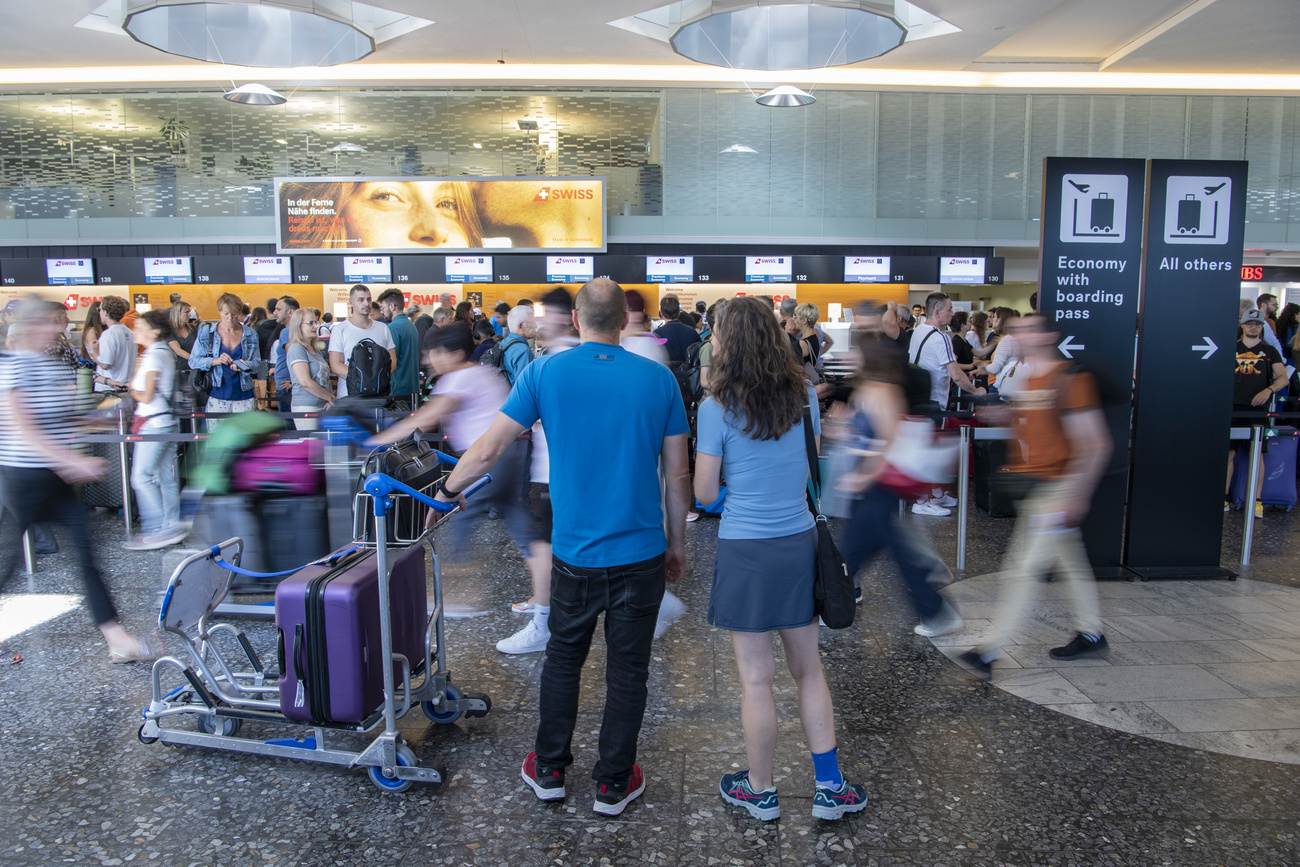

Switzerland Today
Dear readers,
This Friday's news brings you the latest statistics on Swiss emigration around the world. As you’ll see, these figures offer an even clearer picture of the Swiss living abroad.
But this Friday's headlines also concern Swiss nationals in Southeast Asia, which has been hit by a powerful earthquake.
Enjoy the read,

A powerful 7.7-magnitude earthquake struck central Myanmar on Friday, with tremors felt as far as Thailand and China.
Earthquakes of this magnitude are rare – those above 7 on the Richter scale occur only around once every hundred years. Experts also warn of potential aftershocks in the affected countries.
The exact number of casualties remains unclear but is expected to be high. Dozens of victims have already been reported in Myanmar and Thailand. “The figures for damage and fatalities are still very preliminary,” said György Hetényi, geophysicist and professor at the University of Lausanne, speaking to Swiss public broadcaster, RTS.
The Swiss foreign ministry has not received any reports of Swiss victims so far, but checks are ongoing. Around 50 Swiss nationals live in Myanmar and more than 13,000 in Thailand. Most of the Swiss in Thailand reside in areas that have been relatively unaffected.
Swiss nationals directly affected can contact Swiss embassies in the region or the Swiss foreign ministry helpline in Bern on +41 800 24 7 365 or via email at helpline@eda.admin.ch.

There is relief in Geneva: the parcel bomb case that kept the city on edge for weeks has now been solved. The perpetrator has confessed.
The man, a 61-year-old Swiss war photographer, admitted to carrying out the bomb attacks targeting luxury watchmaker Patek Philippe. He said he acted alone and was motivated by severe financial difficulties.
For the past year, the man had sent numerous threatening letters and cryptocurrency ransom demands, not only to Patek Philippe but also to the Migros supermarket chain. He explained he had no personal grievance against the companies, but chose them as likely ransom targets given their revenues, size and public profiles.
His parcel bombs injured two people, including a young girl who was seriously hurt. During questioning, the man expressed regret and said he was “sorry” for the victims.

The latest figures from the Federal Statistical Office (FSO) show that more Swiss citizens are choosing to live abroad each year.
In 2024, a total of 826,700 Swiss passport holders were residing outside the country – an increase of 13,300 people (or 1.6%) compared to the previous year.
The new data reveal no dramatic shifts in destination trends. As in previous years, close to two-thirds (64%) of Swiss Abroad live in Europe. Neighbouring countries remain the most popular: France hosts the largest Swiss expat community (212,100), followed by Germany (101,000) and Italy (52,600).
Outside Europe, North America continues to be the preferred destination for Swiss citizens, accounting for 16% of the total. The United States is home to the largest Swiss community outside Europe, with 84,700 Swiss. Canada and Australia follow in second and third place, respectively.
The FSO also provides insights into the profile of the Swiss Abroad. Three-quarters of them hold at least one additional nationality. More than half (55%) are working-age adults between 18 and 64 years old. Minors represent 21% of the population abroad, while senior citizens account for 24%. Women make up a slight majority, at 54%.

Switzerland should engage more with NATO, according to the Swiss ambassador to Belgium and NATO, Jacques Pitteloud
In an interview with the Neue Zürcher Zeitung (NZZ), Pitteloud argued in favour of a “judicial middle route” – not full NATO membership, which would conflict with Swiss neutrality, but greater participation than today.
He said NATO expects more engagement from Switzerland, especially regarding its restrictive arms export laws and what he called Switzerland’s lax stance on Russian intelligence activity on its soil.
Pitteloud criticised Switzerland’s foreign policy over the past decade, saying it was based on the illusion that power politics no longer existed. “In today’s world, nothing is free,” he warned.
Translated from French using DeepL/amva

In compliance with the JTI standards
More: SWI swissinfo.ch certified by the Journalism Trust Initiative




























